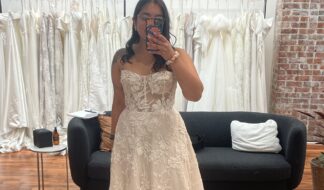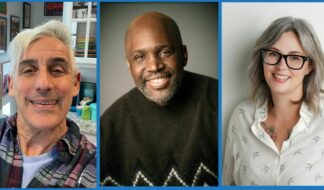By Jessica Carreras
If you're looking for love, cultural anthropologist Dr. Helen Fisher can help you – but first she needs to know which is longer, your ring finger or your index finger.
Huh?
When you ask the average person what it means to have "chemistry" with someone, they'll go on and on about butterflies in the stomach, a certain spark and a feeling of euphoric excitement. But for Fisher, whose work is the genius behind the dating Web site http://www.chemistry.com, there's a lot more to it. That's where her expertise comes in. For example, a longer ring finger means more testosterone, which means that person is more logical, better at math and science and generally thinks with their mind more than their heart. For the opposite scenario, higher estrogen levels mean the opposite is true.
Fisher has come a long way to be able to guide lovers-to-be to potential partners. Over the last three decades, she has studied couples to figure out just what makes our knees weak and our minds unable to drive that certain someone out of our thoughts. She proved that more people decide to marry based on love. "Chemistry matters," asserts Fisher. "These days, we marry for love and go out with people for love."
The trick, of course, is finding that love. While some people look to the bar or the gym, a growing number of people are heading online. Though it's still considered taboo or dangerous by some, Fisher thinks that it's natural. "It's exactly the same mechanics as it was a million years ago," she says, explaining that back then, in small villages, people knew everything about their mate before they met. Online dating, where you get to read someone's profile, see their picture and hear about their interests, is just the Internet's way of matchmaking.
"More and more people are going online (for dates) for very good reasons," says Fisher. "We don't have a long-term bond with somebody we met in high school or college, or even in our early 20s. We do it in our late 20s and early 30s, and by then, you're tired of hanging out in the bar."
Of course, not all online dating Web sites are created equal, nor do all of them treat everyone equally. Recently, frustrations arose when people were being "rejected" from http://www.eHarmony.com, a popular dating site that boasts that over 90 of its users get married every day. People were sent messages that told them that eHarmony was unable to match them. Some of the reasons were unknown, but eHarmony was clear that it would not match members of the same sex and it was biased, based on founder Dr. Neil Clark Warren's evangelical Christian beliefs. That's where http://www.chemistry.com came in. Last April, they launched a $20 million advertising campaign that featured people who came to them after being "Rejected by eHarmony." Their slogan, "Come as you are," aimed at reaching customers who found eHarmony to be too traditional. This included people with religions other than Christian and the LGBT community, who quickly were embraced as a key demographic.
What they found was that gay people are looking for love just as much as anyone else. Since the "Rejected" campaign began, the enrollment of gays and lesbians has risen 200 percent at chemistry.com, according to General Manager Mandy Ginsburg. Now, people looking for a same-sex partner make up 10 percent of the Web site's members.
But to Fisher and her team, it's all the same. "We know scientifically that heterosexual people tend to gravitate toward people with the same economic background, same religious background, same values and same educational background," explains Fisher. "Why would gay people be any different?"
When it comes to sparking chemistry, Fisher believes that same-sex couples are no different, either in the make up of their romantic brain system or in what makes their hearts pound and their palms sweat. While she hasn't done any studies specifically on chemistry in the LGBT community, Fisher plans to do so in the future, and is eager to prove to the world what she already believes to be true: That romance, chemistry and love are the same for everyone, no matter what your sexual preference.
The one difference she will admit to, however, is the longevity of relationships. Though Fisher believes that gays and lesbians are just as capable of having committed relationships, she blames social factors for getting in the way. "I think that not being able to marry has something to do with it," she says. "Gays don't tend to have children. They are more economically equal than straight couples. They don't have that need to stay together."
However, the outlook is still good, whether social stigma and attitudes in the U.S. toward same-sex marriages change or not. Research recently published by the American Psychological Association showed that levels of commitment and relationship satisfaction were the same for the same-sex couples in long term relationships as they were for engaged or married straight couples. This comes as no surprise to Fisher, though she still believes that allowing marriage for same-sex couples would strengthen their bonds. "They'd be more stable," she asserts. "Marriage is a serious matter. You've not only created a personal and sexual bond, but you've also built a social, economic and health bond."
"What I don't understand is why America is so reluctant to let gays marry." Though Fisher could explain the inner workings of every feeling of romance, love and commitment, it seems that some things are still a mystery – even to the experts.









